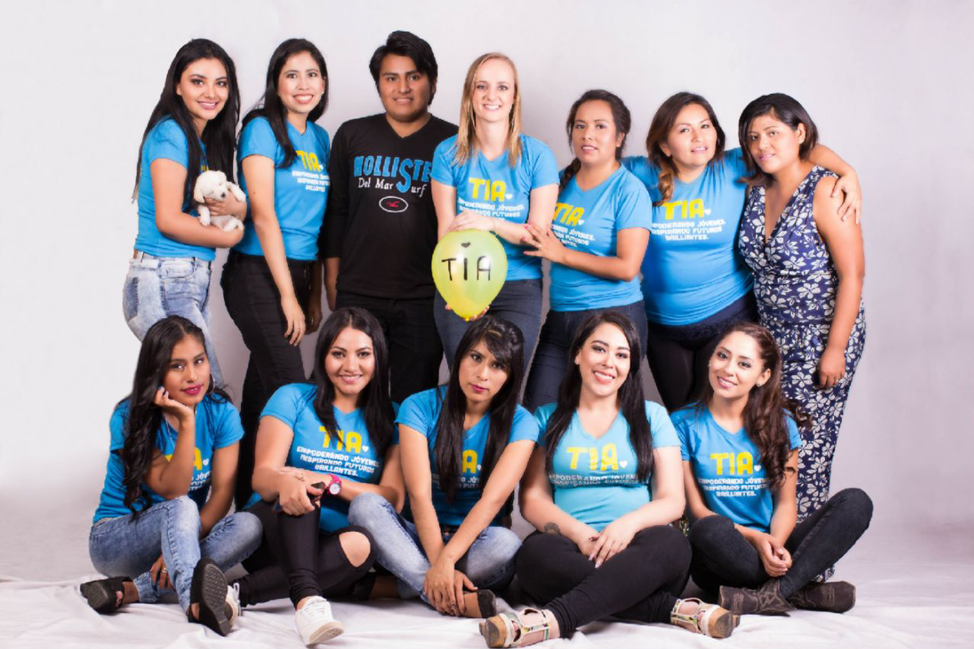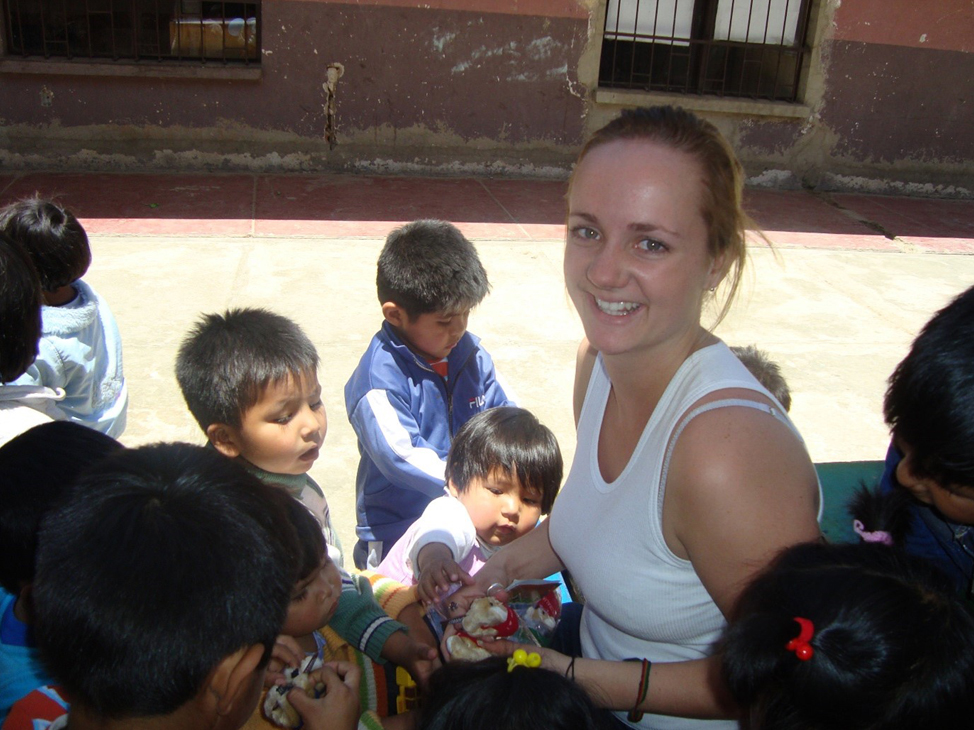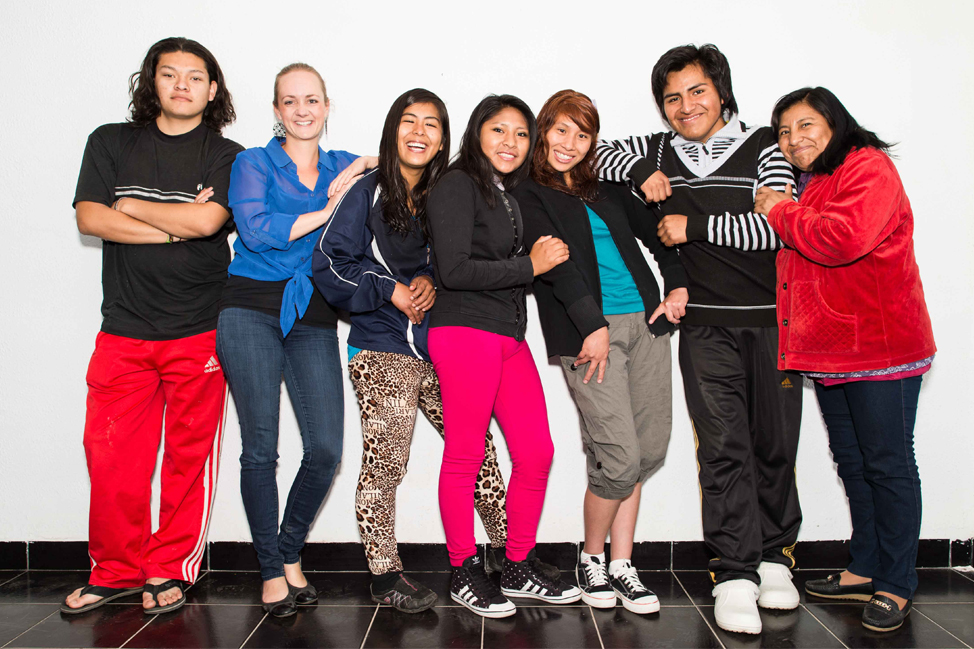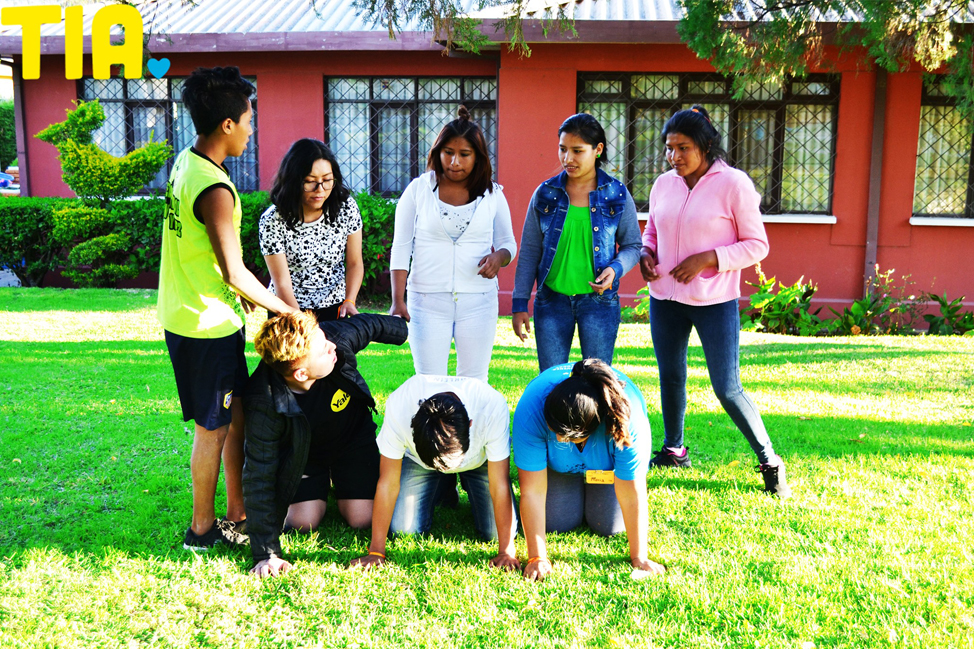30 September 2019

Tessa Henwood-Mitchell
International Director TIA
Bachelor of Social Work
Tessa Henwood-Mitchell's four months spent working at a children’s home in Bolivia during her social work degree, changed everything for her.
Inspired by the needs of the children in the region, Tessa upended her life and established TIA (meaning Aunty in Spanish) and launched the ValenTIA (meaning courage in Spanish) program, an initiative in the region which reaches out to Bolivian children and youth with the aim of empowering them to reach their full potential.
ValenTIA, provides education, employment, and accommodation support to 14-18-year-olds who are making the transition from state care into independent living. Aiming for all young people, who are leaving care or have left care, to be empowered and able to achieve an independent and successful life, contributing to society in a positive way
Tessa kindly took some time out of her day to answer some of our questions at her home in Bolivia about what she’s been up to since finishing her degrees and the brighter future she is carving out for so many vulnerable youth in Cochabamba.

You’ve been called a Social Entrepreneur and Young Leaderin the field of International Development, but how would you describe what you do?
I am the International Director of TIA, based in Cochabamba, Bolivia, and I work in a small local team of five staff, overseeing all of TIA’s projects.
My role is quite varied, but the main areas I focus on are stakeholder relationships (donors, funders, partners etc.), supervising our team, representing TIA in the public sphere, guiding the strategic direction of the organisation and our projects, being the link between Australia and Bolivia, looking and exploring more funding opportunities.
What led you to set up TIA Australia? Could you tell us a bit about the organisation?
I first set up TIA at the age of 21 when I was a first year Social Work/International Relations student at UniSA. I had come to Bolivia as part of the Hawke Ambassador International Volunteer Experience and I volunteered at a children’s home here.
From the short time I was here it struck me how the children and young people in care in Bolivia had such a lack of opportunities to thrive, and so I decided to try to fundraise and do something, albeit small, to change that a little bit.
10 years later, and TIA has grown and blossomed into a very effective not-for-profit organisation working specifically with teenagers and young people who are going through the transition from care into independent living at the age of 18. We run a number of programs and services to ensure that these young people receive the preparation and support they need to make this transition as smooth as possible.
All too often, without the adequate guidance and preparation, many young care leavers in Bolivia return to the cycle of poverty, family violence, and disadvantage from which they were removed originally. We aim to break this cycle and empower these young people to achieve their goals to make a positive contribution to society.
Was social justice something you were always attracted to growing up?
As a child I was always taught to be kind to others, and encouraged to do whatever I can to help those less fortunate. I started volunteering from quite a young age, and realised very early on that I had lived a life of extreme privilege in comparison to others.
In my gap year I did volunteer work in South Africa and Kenya, which confirmed the passion I had for development work and social justice. I had originally wanted to be an investigative journalist to be able to report on the injustices of the world, however after one year of studying Journalism and International Relations (also at UniSA), I realised that I was more interested in working directly with people. This is when I changed to Social Work and International Relations, and came to Bolivia for the first time.

What are the challenges of not-for-profits and this kind of work? Particularly in a place like Bolivia sofar from where you grew up?
One of the main challenges for any not-for-profit is funding. It is constantly stressful to find the funds to both sustain and grow the work we do. Ongoing, sustainable funds are the elusive goal that all not-forprofits strive to achieve, but few manage.
One of the other challenges for our work is the political context of Bolivia. Working within the child protection system means dealing with the government on a constant basis, which can be difficult for various reasons. Instability in staffing within public offices here is very common, leading to inefficiency and miscommunication. In the time I have been living here, there have been four different directors of the Social Services Department.
For me personally, the cultural differences can be hard to navigate sometimes. I have learned so much about Bolivia and the culture over the last few years, but I will always be a foreigner here and have unconscious bias that can shape how I interpret things. I have done my best to find a balance between respecting the local culture, and challenging the aspects that I believe can be improved.

Could you take us through any memorable moments or experiences you have had with TIA?
There are so many memorable moments. One that was incredible was to be invited to present at the CREATE Foundation conference for Kids in Care and Care Leavers in Sydney in 2017, and be able to travel with one of our young people from Bolivia to Sydney to present at the conference. I have been so fortunate to receive so many amazing invitations to participate in various events and conferences over the years, and it makes me so happy to see our young people start to be involved in these events, and have their voices heard. Last year one of our young people went to Colombia for an event, and this year we have three young people and three team members travelling to Mexico for a congress!
There are so many other amazing experiences I could share, but I think really the most incredible and memorable moments are the simple moments when we see one of our young people thrive, and we get to be a part of their journey. Getting to go to a graduation ceremony, or being the first people to be told about a new relationship or a new job, is the most rewarding feeling.
I think one of my greatest accomplishments is that TIA is still alive and still thriving over 10 years after I began this crazy journey. I honestly never expected to still be doing this after so many years! It started as an ambitious fledgling organisation and I’m so proud of what it has grown into.

When you are not working, how do you spend your time? What do you love about your home in Cochabamba?
I have a wonderful group of friends here and a fantastic boyfriend who I love to spend time with, having game nights, doing dinners, camping and going for hikes. I love riding my bike on the weekends, and spending time in my garden or doing yoga. I also have a Bolivian family who were my host family the first time I came here; they have adopted me into their family so we often have family lunch on Sundays. I have three cats at home too so I really enjoy just spending time relaxing at home with them and cooking yummy food with fresh produce from the local market.
I also sometimes teach English classes to high school students, and I am a volunteer in a group called Global Shapers, which is an international initiative of the World Economic Forum. We do community service projects in the local community. I was the Curator of the Cochabamba hub last year, and have just handed over leadership to my successor in July. We do a lot of activities in the local community like planting trees, cleaning up rubbish, community development, education projects etc. I currently teach Expert Social Work at the local public university on Saturday afternoons too.
I love the climate! Cochabamba is known as the city of eternal spring, because it has beautiful weather almost all year round. I also love the proximity of the mountains and nature, and how green the city is. The city reminds me a bit of Adelaide for its size and how easy it is to get around, so I feel very at home here.
How can UniSA Alumni around the world help TIA and your efforts with vulnerable children and youth in Bolivia?
Help with fundraising! As I mentioned, finding funds is the hardest part of our work, so any help from Alumni to get more funding for our work would be amazingly helpful! We also always need more volunteers both in Australia and Bolivia to help with all aspects of the organisation.
For more information about TIA and how to support their efforts visit: tia.org.au/e/


